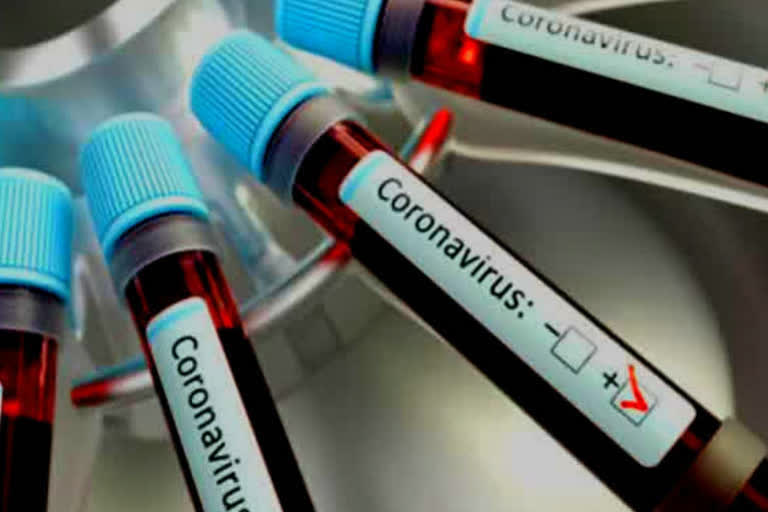New Delhi: Amid all hoopla over plasma therapy as a treatment to cure COVID-19 patients, Union Ministry of Health and Family Welfare on Tuesday said that plasma therapy is still in an experimental stage and its use could be life-threatening.
"Plasma therapy for patients is in an experimental stage. It's effectiveness has not yet been approved. It is being experimented. There is no evidence that this can be used as a treatment and till it is approved no one should use it. lt will be harmful to patient and illegal too," said Lav Agarwal, joint secretary in the Health Ministry.
He informed that the Indian Council of Medical Research (ICMR) has been doing a national-level study to ascertain its efficacy. "Until it is approved, we don't suggest for its use," said Aggrawal.
The statement given by Agarwal could be a shocker for many as several hospitals across India have started its use on COVID-19 patients. In fact, reports suggest that a few patients have also been cured through this plasma therapy.
It may be mentioned here that the Drug Controller General of India (DCGI) had earlier given approval for the clinical trial of plasma therapy. Several COVID-19 cured patients (including Tablighi Jamaat workers) across India have also started donating their blood for plasma treatment.
This has caught the attention of ICMR as well. The ICMR on Tuesday said that despite the threat of COVID-19 pandemic, there is a need to ensure the ethical integrity and establish the scientific basis of using COVID-19 convalescent plasma therapy in patients.
"Plasma therapy comes with its own share of technical challenges, like antibody titer testing. There are also several risks of using this therapy including life-threatening allergic reactions and lung injury," said ICMR and added "currently, there are no approved, definitive therapies for COVID-19. Convalescent plasma is one of several emerging therapies. There is no robust evidence to support it for routine therapy. US-FDA has also viewed it as an experimental therapy."
Also read: Six Nanded returnees test positive for COVID-19; Punjab’s tally reaches 330
Meanwhile, Lav Agarwal while giving data on the latest COVID-19 position in India, said that no new COVID-19 cases have been reported from 17 districts from across India in last 28 days. He said that Lakhi Sarai district in Bihar which did not report a single COVID-19 case in last 28 days, however, reported one fresh case. "As many as 684 people from a total of 29435 COVID-19 patients have been cured till date. The recovery rate is 23.3 percent which is impressive," said Agarwal. He informed that 1543 new cases have also been reported in last 24 hours. 52 deaths also reported in last 24 hours.
"However, as per WHO analysis we are still in stable position in comparison to 20 other COVID-19 affected countries," said Agrawal. Quoting WHO report, Agarwal said that one person dies in India in comparison to 20 deaths in other countries due to COVID-19.
Meanwhile, the inter-ministerial central team (IMCT) visiting several places across India have suggested the district administration for strict enforcement of the lockdown measures. The central team visiting Ahmedabad, however, found that villages in the district have set up Gram Yodha Samity which is looking into the implementation of lockdown measures.
"The IMCT has suggested that other states too can follow the formula where sarpanch, gaon bura, and youths have been volunteering in their fight against COVID-19," said Puniya Salila Srivastava, joint secretary in the Home Ministry. Quoting IMCT reports, Srivastava said that Surat and Ahmedabad district administrations are taking strong measures to implement lockdown. "Food packets have been organised for labourers in Surat. The IMCT told the administration that labourers and workers must aware about lockdown rules in simple ways," said Srivastava.
In a related development, the Health Ministry has issued guidelines for home isolation of people who either have very mild COVID-19 symptoms or are in the presymptomatic stage. "Such patients with requisite self-isolation facility at their residence will now have the option for home isolation," said Lav Agarwal.
Also read: Do you want my kidney?,asks West Bengal BDO officer when locals demanded ration
As per the guidelines, a person who needs home isolation should be clinically assigned as a very mild case and pre-symptomatic case by the treating medical officer. Such a case should have the requisite facility at their residence for self-isolation and also for containing the family.
"Patient, as well as caregiver, will keep monitoring their health. And immediate medical attention must be sought if serious signs or symptoms develop," the guidelines said. During home isolation, both patient and caregiver must adopt and use maximum precautions, the guidelines said.



